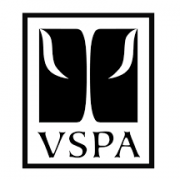The VSPA also offers a lot of opportunities to improve your resume, e.g. by doing a board year or joining certain more serious committees. Below we have gathered all the information you need!
P.S. If you are interested in doing Work & Organisational Psychology, joining one of these committees may be perfect for you since they contribute to your critical thinking and experience within the field!
If you are interested in any of these committees, you can always contact one of the board members for more information, keep an eye on our social media, or send an email to info@vspa.nl.
Board Year
Every year the VSPA is run by a new board. This board consists of 6 highly motivated Psychology students that get selected by the Application Committee and the members. They are responsible for the association as a whole and for all of her committees, members, and activities. They work full-time throughout the entire academic year. A board consists of a Chair, Secretary, Treasurer, Social Committee Affairs Officer, Study Committee Affairs Officer, and Officer of Sales & Acquisition. All of these functions have different roles within the board, but all of them are indispensable to the functioning of the board.
Doing a board year is a big commitment, but it is also something that looks great on your CV and is a lot of fun to do. But, most of all, you are able to contribute to making the student life of psychology students at the UvA even better. Consider a board year, because you acquire knowledge that is useful for the rest of your life.
Applying for a board position starts in February. You will go through an application process in which you do interviews and matching days, to make sure the best combination of applicants get selected.
The advisory organs: SB and CAC
The treasurer of the board keeps track of the financial part of the association. However, on behalf of the GMA, the treasurer of the board will always be checked by the Cash Audit Committee (CAC). Members of the CAC will also attend board meetings to give their critical opinions on financial matters. The CAC often consists of old treasures or students who are interested in the financial side of the association, but it’s not necessary. The members of the CAC will be elected by the GMA.
The Supervisory Board (SB) checks, on behalf of the GMA, whether the board is keeping to their policy and the charter (official statutes/rules of the association). In addition to this controlling function, the SB plays an advisory role in the decision-making of the board and will be elected as the private contact persons of the board. If a board member would like to discuss professional or private issues, which has an influence on the quality of their performance, the SB-members could be helpful during that period. The SB members attend board meetings and often consist of old board members or members with a lot of experience in the policy process of the VSPA. Like all of the other administrative bodies, members will be elected by the GMA.
General Members Assembly (GMA) Committee
Every new plan or idea of the board, with a big enough influence on the association, has to be approved in the General Members Assembly (GMA). In addition, all the administrative bodies are elected during GMA’s. During a GMA, at least 1% of the members of the VSPA must be present. As a member, you can express your opinion, contribute to the thinking process, ask questions and decide whether proposals should be accepted or denied. This way, all of the members have a significant influence on the current situation and the future of the association.
During a GMA you get a little more insight into the serious side of the association. The committee that organizes the GMA’s, thinks about the policy, and prepares the agenda for the GMA’s is the GMA-Committee (GMAtee)
The committee consists of a chair, a secretary, and possibly general members. The chair leads the assemblies and the secretary writes everything down that is discussed during the GMA’s. The general members help with the preparations and promotion of the GMA’s.
Lustrum Coordination Committee (LCC)
On the 14th of May 1941, the VSPA was founded by Marie (Mia) Rijk van Ommeren. This means that every five years, we are looking for a special committee to help us celebrate this milestone. As a member of the Lustrum Coordination Committee (LCC), you will have a lot of freedom in what kind of activities you choose to organize. During our 75th anniversary, this committee organized a pool party for instance. There is more than enough room for creativity in this committee! This committee will take you around an hour per week, but this will increase to approximately five hours a week as the event(s) near. The next LCC will be chosen at the end of the academic year 2024/2025.
First Year Weekend Coordination Committee (FCC)
The First Year Weekend (FYW) takes place at the start of the year. This is the weekend where first-year psychology students spend a great weekend together in the south of The Netherlands to get to know each other and older VSPA-members. For many students, this is one of the most enjoyable VSPA-activities of the year! The weekend is full of fun activities, games, food, and parties: the perfect place to make some friends. The committee always starts in April and will finish after the first year’s weekend. The workload of the committee is pretty high so be aware of this. Every spring, around five coordinators will be elected at the GMA, who will work together to create a weekend that will never be forgotten. In addition to the First Year Coordination Committee (FCC), many people are still needed to make the FYW a success. Would you like to become a FYW volunteer mentor next year, keep an eye on the VSPA-platforms for more information.
Application Committee (AC)
The Application Committee (AC) is responsible for finding the perfect next board of the VSPA. The AC holds interviews and organizes the assessment day with the psychology students who apply for a position in the new board. During this process, you analyze the interviews, the personal characteristics, the competencies, and the possible pitfalls of the applications. After the procedure, the AC presents its board with its motives to the GMA. The GMA then votes on whether to accept this future board.
The AC consists of multiple members, who all have a different connection with the association. Around December the AC will be elected during a GMA. Do not underestimate the hours you will be spending interviewing the applicants and analyzing them afterward, together with the rest of your committee.




